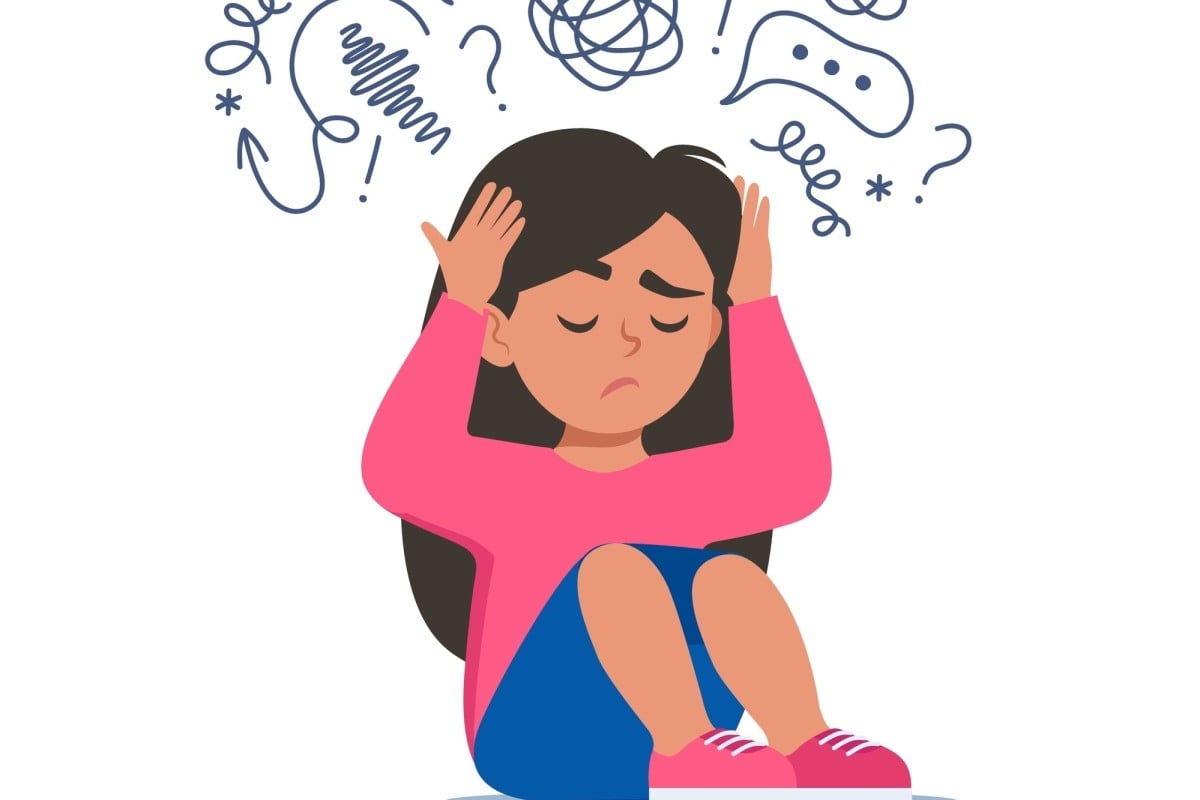 Fewer than 33% of Hong Kong secondary school pupils will seek help for mental health issues, revelas poll. Photo: Shutterstock
Fewer than 33% of Hong Kong secondary school pupils will seek help for mental health issues, revelas poll. Photo: Shutterstock A survey reveals that only a third of Hong Kong secondary school students would seek help for mental health issues, highlighting a lack of safe spaces for discussion and insufficient mental health literacy.
A poll by the Chinese YMCA of Hong Kong whose results were released on Sunday showed that among 826 pupils between Form One and Form Six interviewed in July and August, nearly half said they “would not necessarily” seek help, while more than 20 per cent indicated they “would not seek help at all”.
Only 32.5 per cent of respondents said they would seek help when dealing with mental health problems.
Simon Ho San-moon, research officer at the association, said students with lower willingness to seek help exhibited significantly higher levels of depression, anxiety and stress, along with poorer resilience in their overall mental health.
A Form Five student named Christy said at a press conference she had once considered suicide after falling out with her mother, and would often burst into tears when she was overwhelmed by the amount of homework she had to do.
“One of the major stressors was when my teacher asked me which university I wanted to go to. This was when I had just started my first day of Form Three and had not even chosen my subjects,” she said.
“Hearing my classmates talk about their goals also made me feel pressured because I had no idea what I wanted.”
Why you shouldn’t trust all mental health advice on social media
After resolving her conflicts with her mother through counselling, Christy said, she would talk to her friends about her stress but rarely discussed it with adults.
She called on adults to be less judgmental, treat teens with respect and discuss solutions to overcome challenges together, so young people would open up more about their problems.
The survey found that more than 40 per cent of students were willing to talk about their feelings with peers or friends, but less than 30 per cent would discuss issues with adults.
Jessica Mo Pui-man, who was also in charge of the survey, said youngsters often struggled with expressing their feelings, making it difficult to understand their emotions and needs.
“They may not establish trusting relationships with adults that allows them to discuss their feelings, fearing judgment or misunderstanding,” she said.
Ahead of city leader John Lee Ka-chiu’s policy address on October 16, the association urged the government to make a three-tier emergency mechanism introduced last December a permanent system in schools.
The Education Bureau recorded 32 suspected suicides among primary and secondary school pupils last year, more than double the figure in 2018.
Bureau data also showed that the number of students with mental illnesses tripled over the past five years from 600 to more than 1,900 in 2023.
A recent study by the University of Hong Kong also found that the suicide rate among girls under 15 had increased by more than seven times since 2022.
Chinese YMCA executive secretary Li To-sang said the framework had been “very helpful” in assisting schools and NGOs seeking urgent medical care for students with severe mental health issues.
In a separate television interview, Professor Paul Yip Siu-fai, who sits on the government’s Advisory Committee on Mental Health, said the government should keep the mechanism in the long-run, pointing to an increased number of suicides in those aged below 15 in 2023.
“Students face issues that are not solely related to exams. They also involve relationships, particularly between teachers and classmates,” he said.
“In the next one to two years, we must remain vigilant and closely monitor the well-being of students.”
Yip said many schools were using the third tier so they could better handle cases and help students get access to medical professionals for expert advice and assurance.
He said preventive measures that addressed structural issues were still lacking, adding that half of the students who took their own lives last year came from single-parent families.
